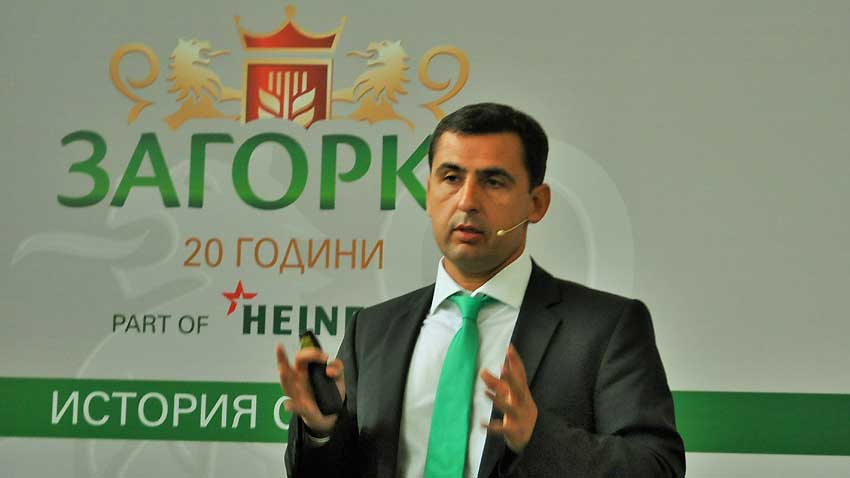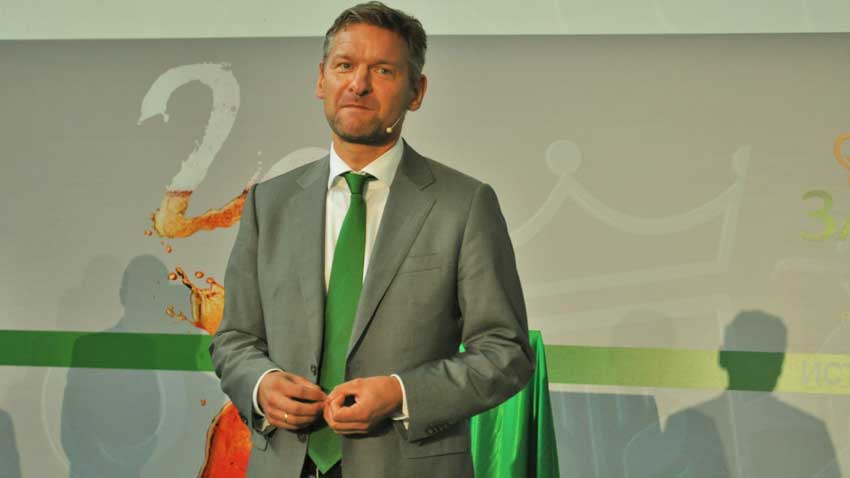In 2013 Bulgarians drank more than 511 million liters of beer, data by the Union of Brewers in Bulgaria show. This country places 14th in the beer sales chart of the EU. The leading beer brand when it comes to revenues is one that has over a century of history. In the middle of the 1990s the well-known brand of Zagorka became property of Heineken and the brewery of Zagorka was the first to become private. Today, two decades later, the brand is Bulgaria’s top beer and shareholders in Zagorka enjoy their success.
How come the economic crisis of late 2008 affected badly industries such as construction and real estate market, but failed to knockdown Bulgaria’s beer industry? It turns out that neither the financial turmoil, nor poverty and unemployment can make Bulgarians abandon the small joys in life, such as an ice-cold beer. Therefore, despite existing difficulties, breweries in the country have stable revenues. This is particularly true for Zagorka, which began its rise to success in the mid-90s, when it was privatized by one of the world leaders in the brewing market - Dutch company Heineken. Investments in the brewery have reached over 100 million euro. Revenues for the past two decades are more than 800 million euro. For the past 20 years Bulgarians have drank 25 million hectoliters of beer made in Stara Zagora. This equals more than 1,000 Olympic swimming pools filled to the brim, CEO Nikolay Mladenov says with satisfaction and adds that one of the prerequisites for success in addition to investments in technology is creating a portfolio of brands.

"Bulgarians trust brands and building a portfolio was a long process. The Ariana brand, for example, which used to be sold mostly in Sofia’s Gorublyane distrcit was bought by Heineken, becoming the largest Bulgarian brand. Now one out of 5 beers drunk in Bulgaria is Ariana,” Nikolay Mladenov says.
However, the economic crisis has had negative effects on the sector after all. What are the challenges breweries face?
"If we look at figures from 2009 to this day, we see that the volumes stay the same. Population declines and consumption per capita rises, but the total hectoliters remain the same. It is difficult to work in such market conditions, as this market is static and what you can count on are innovation, winning market share and being more efficient in the way one does business. Figures from the past 4 years show that Zagorka holds about 65 percent of all profits in the beer industry. This means the company is profitable."
What is the biggest problem of the brewing industry in Bulgaria?

Former CEO of Zagorka Ruud van den Eijnden has a lot to tell about the 4-year period during which he represented Heineken in Bulgaria. He does not hide his satisfaction with the results achieved. We asked him if it was easy doing business in Bulgaria. His answer is contained in the audio file.
English: Alexander Markov
Photos: Veneta Nikolova
One of the largest Bulgarian companies for repairing civil aviation aircraft has chosen Burgas for a major investment in aircraft repair and maintenance, the Municipality of Burgas announced. The company will build one of the largest hangar complexes..
In 2024, Bulgaria's exports of goods to third countries decreased by 5.1% compared to 2023, amounting to EUR 15.4 billion (30 114.9 million BGN), according to data from the National Statistical Institute (NSI). Bulgaria's main trading partners..
It is extremely concerning that the largest company in Bulgaria, Lukoil Neftohim, which is part of the country's critical infrastructure, is still in the hands of a country that has declared Bulgaria a hostile state. This opinion was shared by energy..
Bulgaria’s Minister of Finance Temenuzhka Petkova said that the turnover of large retail chains in Bulgaria decreased by 28.8% on the day of the boycott..

+359 2 9336 661
